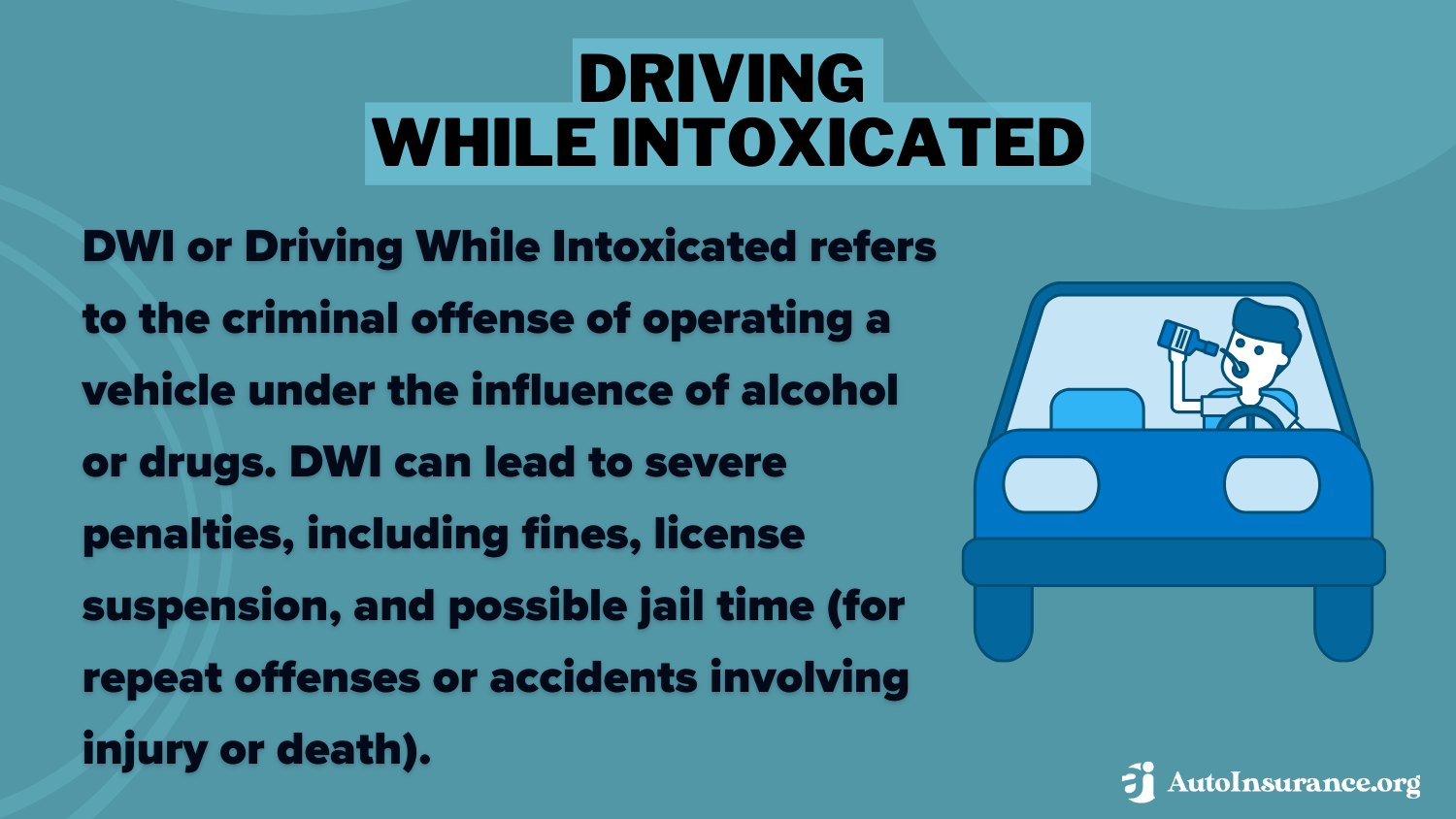What do auto insurance companies look for, and do insurance companies share information with each other?
Insurance companies look at many different factors to calculate your rates but do not share your information directly with each other. For example, when requesting a quote, you provide your age, vehicle, and ZIP code, and the insurance company can verify this information.
Your age is important because younger drivers lack experience behind the wheel and tend to be in more accidents. As drivers get older, rates decrease.
The insured vehicle also affects rates. For example, newer or more expensive cars cost more to repair or replace, so insurance rates are higher. In addition, drivers with a car lease or loan may have to carry more coverage, raising rates further.
Where you live influences your rates as well. Insurance companies charge higher rates in areas with a high theft rate since your vehicle is more likely to get stolen. Cities with a high traffic volume also have higher rates since you’re more likely to be in an accident.
Your driving record, claims history and credit score also determine your rates. While you provide this information for your quote, the auto insurance company verifies your information by requesting reports from specialty companies.
However, these reports cost money, so the insurance company doesn’t request them often. Typically, insurers only request reports when you apply for new coverage or your policy is up for renewal.
You can request copies of any report with your information, which generally costs less than $12. If you get denied coverage because of a report, you can receive a copy of the report for free. If a report is incorrect, you can contact the reporting company to correct the information.
Free Insurance Comparison
Compare Quotes From Top Companies and Save
Secured with SHA-256 Encryption
What information do car insurance companies have access to?
Car insurance companies have access to all types of information to assess risk and determine premiums. These specific pieces of information include details about the insured vehicle but also could include specific information about the driver, such as age, gender, driving history, credit score in some cases, and the location of where the vehicle is primarily kept or being driven. Additionally, insurance companies may have access to an auto insurance database, containing comprehensive information about accident history, claims records, and policy details.
Car insurance companies have access to a wide range of information about insured vehicles and drivers. Do insurance companies communicate with each other? Yes, they do, especially when it comes to risk assessment and pricing. Do insurance companies share information about claims history- yes. Can other car insurance companies see your claims? Yes, because they have access to claim history and records, which helps them make informed decisions about coverage and premiums.
However, are insurance claims public records? No, they are not in the public records, just like your car insurance is not public information, but they are shared among insurance companies to prevent fraud. Can insurance companies see previous claims from a long time ago? That information is accessible in the auto insurance database that insurance companies have access to.
When it comes to the question of what information insurance companies have access to, the answer is that it varies. While Can I share my insurance policy number? is a common question, it’s generally advised to share this information only with authorized parties, such as repair shops or other insurance companies for claims processing. Insurance policy numbers are confidential and serve as unique identifiers for specific insurance policies. They are typically used for administrative purposes between the insured individual and the insurance company. It’s a good piece of information to safeguard for yourself.
However, it’s essential to be cautious if insurance companies ask for a bank account number, as this information is not typically required for insurance purposes and could be a red flag for potential scams.
What reports do auto insurance companies use to determine rates?
First, a car insurance company looks at your driving record or motor vehicle report (MVR). Your MVR details any accidents, tickets, or DUIs on your record. Although most states only include infractions for three years, some states keep records for 10 years.
How do auto insurance companies check your driving record? The companies request one from the DMV. However, there is a fee for each record.
Your driving record shows what kind of driver you are and whether you are likely to cost the insurance company money in the future. Risky drivers have much higher rates, and drivers with multiple infractions see rates skyrocket.
Next, your Comprehensive Loss Underwriting Exchange (CLUE) report shows all claims filed, accident-related or not. So, for example, if hail damages your car and you file a claim, it would show up on your CLUE report but not your MVR.
The CLUE report indicates whether you’re likely to make a claim based on the number of claims filed in the past. For example, if you file claims for minor damages, it can be a red flag to insurers that you are unlikely to pay for damages yourself. This is how car insurance companies know about previous claims.
Finally, insurance companies look at your credit report. Various factors determine your credit score, such as on-time payments, how many accounts are open, and what credit types you have.
Studies show that drivers with a higher credit score are more likely to pay for damages out of pocket and avoid filing a claim. Therefore, insurance companies save money and offer lower rates.
Additionally, a credit report shows if you’re likely to pay your bill on time.
How can you save on your auto insurance?
Now that you know what auto insurance companies look at to determine rates, there are ways to keep those rates as low as possible.
First, you can’t avoid your insurance company looking at your driving record. It’s best to be upfront with the company so that it doesn’t revoke your offer or cancel your policy.
The good news is that you aren’t penalized for poor driving forever. Every few years, infractions come off of your driving record. So if you avoid adding new accidents, tickets, or DUIs, your record can be clean again in a matter of years.
In addition, every company looks at your driving record differently. If you only have one offense, the insurance company may be willing to overlook it and not charge higher rates.
Next, avoid filing a claim if you can pay for repairs yourself. Keeping your CLUE report clean is also important to keep rates low. While damages may be expensive to repair, it may be cheaper to pay out of pocket rather than suffer high insurance rates for years.
Finally, increase your credit score. Make good choices on how you use your credit and pay your bills on time. For example, think carefully about signing up for another credit card.
You can receive a free credit report annually from a reporting agency such as Experian. Go through your credit report each year to ensure the information is correct. Not only will you save on insurance, but you’ll get lower rates on other purchases such as a car or mortgage.
Although these changes take time, they also make a big difference in auto insurance rates. Request copies of these reports to begin the process today.















